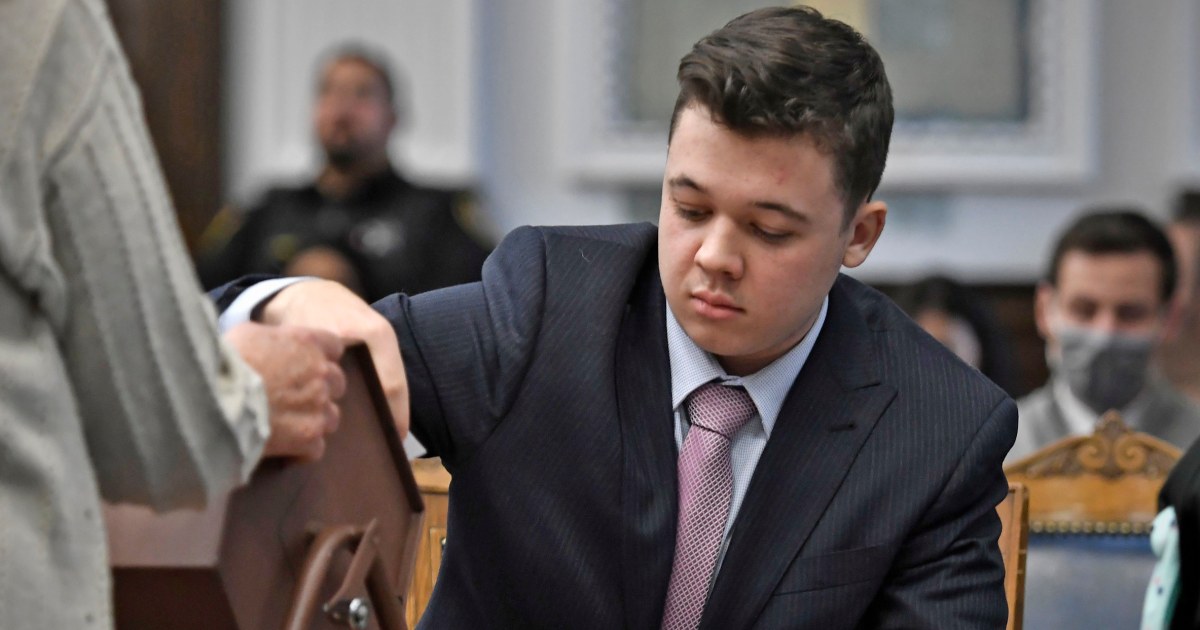Kyle Rittenhouse could spend the next several decades of his life behind bars or soon walk free from a Wisconsin courthouse.
And pieces of paper he grabbed at random with his right hand will have played a major role in the life-turning outcome.
In an “interesting piece of theater” in his high-profile trial, Rittenhouse was directed Tuesday to blindly pick the seven women and five men who will decide whether he is criminally responsible for killing two men during protests last year over the police shooting Jacob Blake, a Black man in Kenosha.
Eighteen prospective jurors sat through two weeks of testimony and arguments before Rittenhouse was told to pick six numbers out of a tumbler. The six numbers corresponded to jurors who were then stricken from the panel, resulting in the 12 who were sent into deliberations.
Wisconsin courts regularly seat more jurors than necessary before extras are randomly struck at the end of trials to get down to 12 for deliberations, lawyers said Tuesday.
John P. Gross, the director of the University of Wisconsin-Madison’s Public Defender Project, said he has seen only judges do the picking, but he didn’t object to Rittenhouse’s having the heavy hand of selection.
“It’s completely random, and whoever is picking is picking,” Gross said. “It was an interesting piece of theater having the judge inviting the defendant to make the draw.”
Ion Meyn, who also teaches law at UW-Madison, said he was jarred by the judge’s having Rittenhouse handle the lottery. It has always been the courtroom clerk who does the draw in his experience, he said.
“I know it’s a random selection, but I have some concerns about it,” Meyn said. “To me, from the optics side, it doesn’t make sense. I don’t think it was a good idea.”
Michael D. Cicchini, who practices criminal law in Kenosha, said he has always seen judges or bailiffs doing the selection. But he had no issue with Rittenhouse’s conducting Tuesday’s drawing.
“It’s not very consequential. It’s all blind,” Cicchini said. “I don’t see anything off about it. I mean, it is the defendant’s trial.”
And Michael O’Hear, who teaches criminal law at Marquette University, said he isn’t worried about who owns the five fingers selecting juror numbers.
“As long as the process is random, whose hand goes into that hopper, it doesn’t matter,” O’Hear said. “Maybe optically it looks unbalanced, but that’s getting into minutiae.”
Kenosha County Circuit Judge Bruce Schroeder has been at center stage of the trial since the start for a number of rulings and attention-grabbing courtroom outbursts.
Does having Rittenhouse make the draw “have any legal significance? No,” Gross said. “For this case, with this judge, is it a fitting final note? Yes.”
David K. Li is a breaking news reporter for NBC News.





